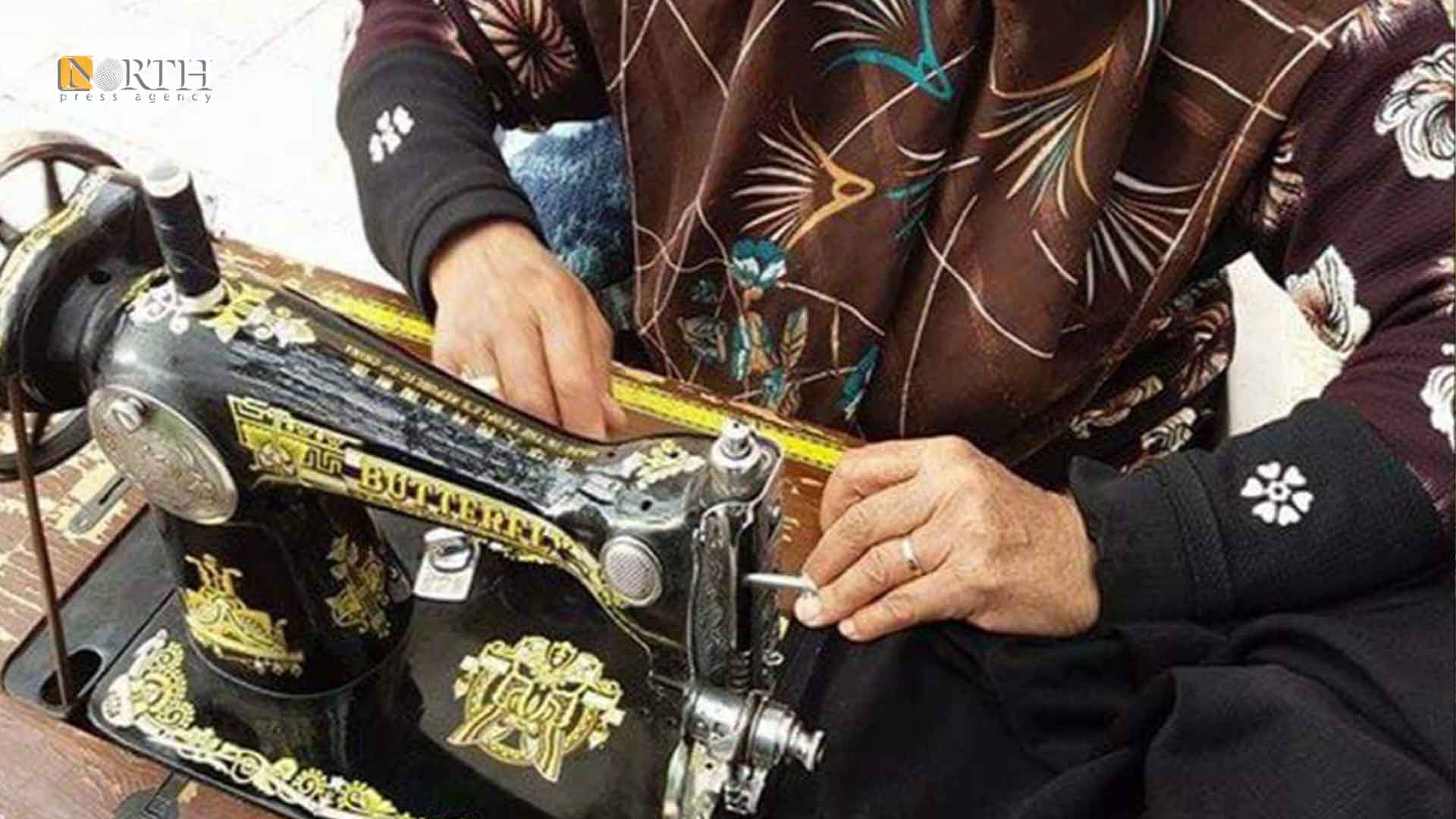War pushes women to work in Syria’s northwest
IDLIB, Syria (North Press) – Every day, 40-year-old Umm Iman leaves her tent near the Syrian-Turkish border outside the town of Atmah, north of Idlib, and heads to an agriculture workshop in Sarmadah.
The war in Syria has pushed hundreds of women to work in different fields despite difficulties and risks they are facing during work and low wages compared to the long work hours.
Despite the low wages, Umm Iman and many others are forced to work due to poor living conditions that residents and IDPs in the area are witnessing.
According to the World Bank, 87% of the Syrian population lives below the poverty line.
“Since we got displaced two years ago and due to the deteriorating living conditions, I have been forced to work in an agriculture workshop for women,” Umm Iman, an IDP from Kafr Sijnah, south of Idlib, told North Press.
“Despite low wages, but we are forced to work 10 hours a day to make 10 Turkish lira (about 6,000 Syrian pounds), and this amount can hardly cover the costs of a vegetarian meal,” she added.
Umm Iman pointed out that she has no other choice to make money and secure her children’s daily basic needs, as she does not have a certificate or experience enabling her to practice another safer profession.
Like other widows, she visited “local councils asking for support, but all were void,” according to her.
Maryam al-Hammud, an IDP from the town of Ma’aret Hurmah, south of Idlib, works in a sewing factory in the IDP camps near Atmah.
“I work in order to help my husband secure our basic needs,” Maryam told North Press.
“In light of the high prices that market is witnessing, each family needs more than 30 Turkish lira (18,000 SYP) per day,” she added.
Official reports reveal that the percentage of female workers in the Syrian markets exceeds 80% due to conditions men face due to the war. Additionally, several private sectors tend to seek the help of female workers to meet their needs at work.
Maysa’ Abdulrahman, an IDP from Hama residing in a camp, was forced to stop her education due to the deteriorating living and security conditions.
Seven years ago, Abdulrahman fled with her family from areas north of Idlib, and she said, “Due to the disability, lack of security, and universities being far from my place of residence, not to mention the deteriorating financial conditions of my family, I stopped my education.”
Maysa’ was forced to work in a clothes shop in Atmah town, explaining that “work is not difficult, but work hours are long.”
She works from 9:00 AM to 7:00 PM, and despite the long work hours, her salary does not exceed 50 US dollars, according to her.

